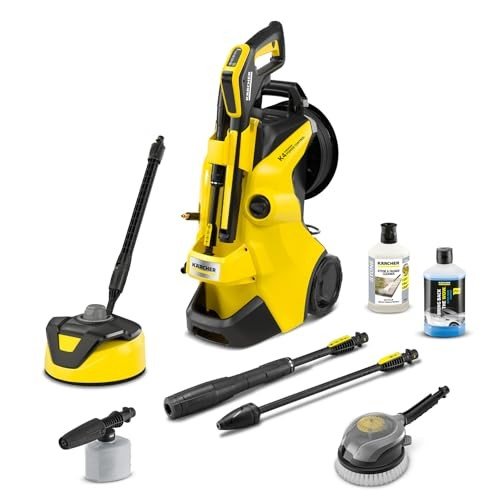A Comprehensive Guide to Buying Power Tools: What You Need to Know
Power tools have transformed the method we carry out various jobs, making them quicker, easier, and more effective. Whether you are an expert specialist, a DIY lover, or a property owner looking to take on jobs around the house, understanding how to choose the right power tools is vital. This post serves as a comprehensive guide to buying power tools, going over types, features to consider, and supplying useful pointers to make sure an effective purchase.
Types of Power Tools
Power tools can be classified into different types based on their functions and applications. Here's a breakdown of the most common types:
| Type of Power Tool | Description | Typical Applications |
|---|---|---|
| Drills | Used for drilling holes in different products. | Woodworking, construction. |
| Saws | Important for cutting wood, metal, or plastic. | Woodworking, metalwork. |
| Sanders | Smooths surfaces by removing product. | Ending up wooden items. |
| Mills | Suitable for cutting, grinding, and polishing materials. | Metalwork, masonry. |
| Effect Wrenches | Offers high torque output for securing. | Automotive repair work, building and construction. |
| Random Orbit Sanders | Integrates rotary and orbital motion for a smooth finish. | Fine woodworking finishes. |
| Router | Models edges and hollow out areas in wood. | Woodworking, kitchen cabinetry. |
| Nail Guns | Speeds up the process of fastening products together. | Framing, roofing. |
Elements to Consider When Buying Power Tools
Choosing the right power tool includes more than just choosing the most popular model. Here are some important factors to think about:
Type of Project
- Determine the particular jobs you will be performing. Some tools are versatile, while others are more specialized.
Power Source
- Decide in between corded and cordless tools:
- Corded Tools: Typically use more power and don't need battery changes but have restricted mobility.
- Cordless Tools: Offer the convenience of mobility but might have decreased power and need battery upkeep.
Tool Quality
- Examine brand name track record, construct quality, and products used. Buying long lasting tools might save money in the long run.
Ergonomics
- Try to find tools that are comfortable to hold and operate, particularly if you'll be utilizing them for extended periods.
Safety Features
- Check for functions like automated shut-off, security guards, and redundant controls to ensure safe operation.
Service Warranty and Customer Support
- Consider the manufacturer's service warranty and the accessibility of client assistance. Trustworthy warranties can safeguard your investment.
Budget
- Establish a budget plan before shopping. Power tools can differ considerably in cost, so it's vital to find a balance in between quality and cost.
Popular Brands to Consider
When looking for power tools, it's helpful to familiarize yourself with brands known for their quality and dependability:
- DeWalt: Renowned for long lasting and high-performance tools.
- Bosch: Offers a wide variety of innovative power tools.
- Makita: Known for light-weight and cordless alternatives.
- Milwaukee: Features high-torque tools created for durable applications.
- Ryobi: Provides affordable tools without jeopardizing quality.
Tips for Buying Power Tools
To help simplify the purchasing procedure, think about the following tips:
Do Your Research
- Evaluation online resources, comparison sites, and customer reviews to make educated decisions.
Check Out Local Hardware Stores
- Experience the tools personally. Hold them, evaluate their weight, and assess their comfort level.
Try To Find Kit Deals
- Many manufacturers offer bundled tool kits, frequently at a discount rate, which can be a cost-efficient way to get numerous tools.
Watch on Sales
- Look for seasonal sales, clearance occasions, or advertising offers to get the very best deals.
Invest in Accessories
- Do not forget to spending plan for needed accessories like drill bits, blades, or security equipment, as these can improve the utility of your power tools.
Regularly Asked Questions (FAQs)
1. What are the vital power tools for home enhancement?
The most frequently recommended essential tools consist of a drill, circular saw, jigsaw, and sander. These tools can deal with a range of tasks from basic repairs to bigger projects.
2. Should I buy corded or cordless power tools?
This depends upon your requirements. Cordless tools use flexibility and mobility, making them ideal for outside and remote projects. Corded tools usually offer more power and are fit for high-intensity tasks or longer projects.
3. How do I preserve my power tools?
Routine cleaning, appropriate storage, and lubrication of moving parts are vital for preserving the longevity and performance of power tools. Always follow the maker's guidelines for maintenance and care.
4. Can Power Tools Online utilize power tools without experience?
While some power tools are easy to use and designed for beginners, it's important to comprehend their operation through guidelines or tutorials. Consider enrolling in a workshop or training session for hands-on experience.
5. What safety preventative measures should I take when using power tools?
Constantly wear proper PPE (personal protective equipment) such as goggles, gloves, and ear defense. Guarantee your work area is clear and avoid wearing loose clothing or fashion jewelry that can end up being entangled in the machinery.
Purchasing power tools can be a frustrating job, particularly for those new to DIY jobs or building. However, by comprehending the various kinds of tools, considering important factors, and following expert pointers, consumers can make informed and gratifying purchases. The ideal power tools not only improve performance and efficiency but likewise enable users to complete jobs with precision and self-confidence. As technology continues to advance, staying informed will make sure that you get the most out of your investments in power tools.

